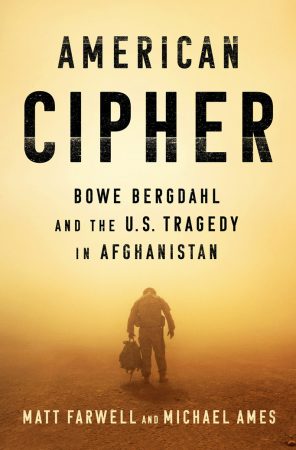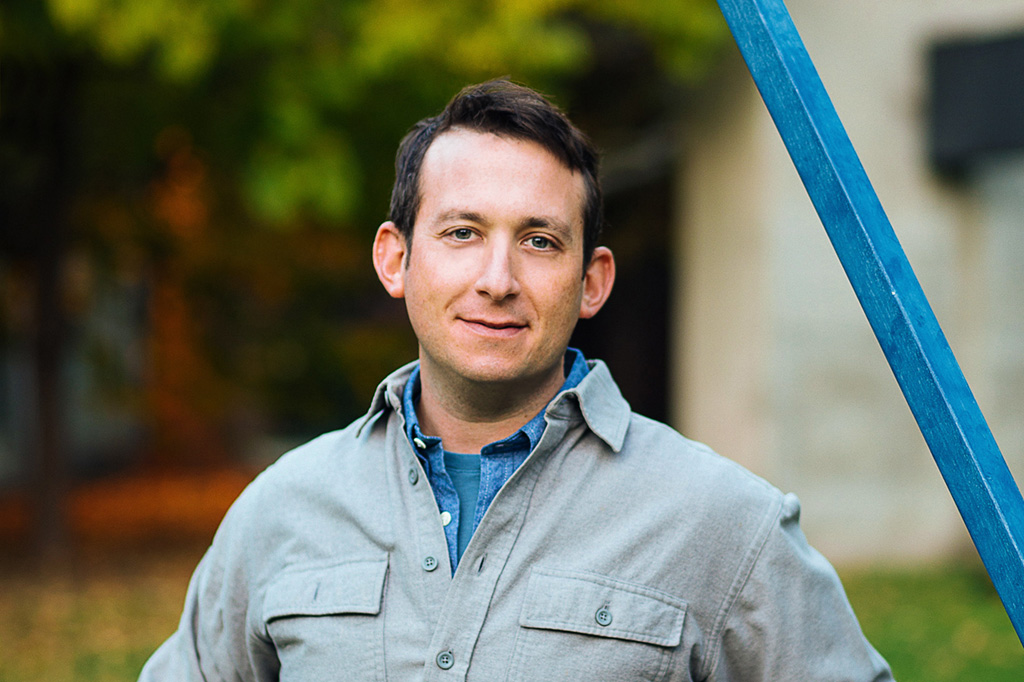Two weeks after Americans learned a young Army private had been captured in Afghanistan, writer Michael Ames learned that the naïve young man who thought he could fix things by walking off his base was the son of a UPS driver who, every day, delivered packages to the Sun Valley Magazine offices where Ames worked.
Furthermore, he realized, he had previously met Bowe Bergdahl while working at Friesen Gallery near a teahouse where
Bergdahl lived and worked.
Over the next 10 years, Ames became intimately acquainted with Bowe Bergdahl as he and Matt Farwell, a former Army infantryman, investigated why Bergdahl left his post, why the Army suppressed intelligence pinpointing Bergdahl’s location, and why it bungled multiple opportunities to bring him home sooner.
Their book, “American Cipher: Bowe Bergdahl and the U.S. Tragedy in Afghanistan,” is an easy read that contains interesting tidbits for Sun Valley residents, such as the fact that Bowe Bergdahl’s dad, Bob, likely would have competed as a cyclist in the 1980 Olympics had President Jimmy Carter not pulled the United States out following Russia’s invasion of Afghanistan.
And it paints Bowe Bergdahl as an excellent marksman who held himself to a warrior’s code, was appalled that sexual assaults and rapes were rampant at Fort Richardson, in Alaska, where he trained, and was beside himself that his commander would order him to dig bunkers in an Afghan cemetery.
He was a gentle soul, unfit for combat duty, said one man who knew him.
Ames couldn’t resist the call to write Bowe Bergdahl’s story. He had watched as Bob Bergdahl grew his beard in solidarity. He had seen the pain in the father’s eyes grow, even as he remained polite when asked how it was going. He had seen stickers in support of Bowe placed in nearly every store window and many of the cars in the Wood River Valley. He had watched as yellow ribbons paid for by Blaine County Republicans were tied around the trees on Hailey’s Main Street. And he had seen children muster yellow ribbon performances at the Hailey rodeo.
Ames left his editor job at Sun Valley Magazine, for Brooklyn N.Y., while Bergdahl was yet in captivity. But upon Bowe’s release from captivity, he was spurred to revisit his notes from 2010 when Bob Bergdahl, flanked by Idaho’s Republican leaders, gave his first public speech at River Run Lodge. The subsequent story, which he wrote for The Daily Beast, was widely read. And Ames soon found himself writing other stories, including a cover story for Newsweek titled “Searching for Bowe Bergdahl.”
“The Army had intelligence that Bowe was in Pakistan within days of his disappearance, but the search went on for months because it allowed them to conduct raids,” said Ames in an interview during a recent book tour visit to Ketchum. “When the first video of Bowe came out, the Army refused to listen to the Pentagon analyst, even though she had been in the military for
16 years.”
It didn’t help that the media turned the story into a political football, he said. “Having lived here, I was outraged that the media—journalism, my career—could have botched things so badly that innocent people were receiving death threats for doing nothing but supporting a family in the community. The whole thing traumatized the Wood River Valley, making the community less trusting, less open, less welcoming.”
When he asked a reporter at Fox News about it, he was told, “Don’t you get it? No one takes Fox News seriously.”
“Well, the people who produce Fox News may know it’s a show, but the people on the other end of the TV don’t,” Ames said.
Ames jumped at the chance to write a book with Farwell, who had written a 2012 story for Rolling Stone magazine that quoted military sources saying that the investigation was false. “He knew the Army inside out, having worked in Training and Doctrines. And I knew Ketchum,” Ames recounted.
The two interviewed congressmen on Capitol Hill, and they went to Ft. Bragg for Bergdahl’s hearings. They were the only reporters to interview an Afghan translator involved with the Bowe Bergdahl case. And they interviewed Bergdahl’s former platoon mates—the ones, Ames said, who didn’t appear on Fox News with politically motivated opinions.

Co-authors Michael Ames and Matt Farwell spent 10 years investigating the Bergdahl case.
“We set out to tell the definitive story, leaving no stone untold. We have 900 endnotes in our book, and we’re proud of that. That meant we did our homework,” he said.
The most difficult challenge was getting the Army to release Bergdahl’s sworn statements—something a serial podcast curiously got before everyone else.
“Everyone in the Army wanted to talk with us except for the three generals: McChrystal, Petraeus and Flynn. They wanted to protect the institution.”
Wood River Valley residents were helpful and supportive. Bob and Jani Bergdahl finally agreed to talk with Ames in July 2018 on the eve of the book’s deadline.
“I wanted an extension and the publishers wouldn’t give it. So, I became like a man possessed. It was not a healthy time for me. I was stressed out, I didn’t sleep much, I gained weight. But I was so fortunate to have the opportunity to talk with them. The book is much better, a truer story, because of it.”
Ames said that the degree to which the government collaborated with Bob Bergdahl showed that they respected his understanding of the war. But Ames was discouraged by how quickly the government kicked Bob Bergdahl to the curb when the politics went bad.
While he found 90 percent of the individuals that he interviewed in the military “impressive,” Ames was discouraged at how the bureaucracy of the military allowed itself to be manipulated by politics and the “political infotainment” that Fox News provided.
Bergdahl was a test run for the Russians’ social media memes to spread disinformation to divide the country. And Republican operatives also saw Bob Bergdahl’s anti-war protests as an easy target to sway public opinion during mid-term elections, Ames said.
“They knew if you tell a lie enough times, people will believe it. It was the foreshadowing of the Trump era. Trump was the first person to call Bowe a traitor after he was rescued. And you know where he got that notion of traitor? From Taliban propaganda.”
Ames wouldn’t go so far as to call Bowe Bergdahl a hero. But he is impressed by how Bowe withstood the torture his captors administered. “He endured the worst captivity of anyone in Afghanistan, and he never broke,” he said. “He withstood abuse that would’ve killed others. His dad said he just wouldn’t die.”
What’s next?
Michael Ames plans to spend this fall writing about the Afghanistan peace talks.


